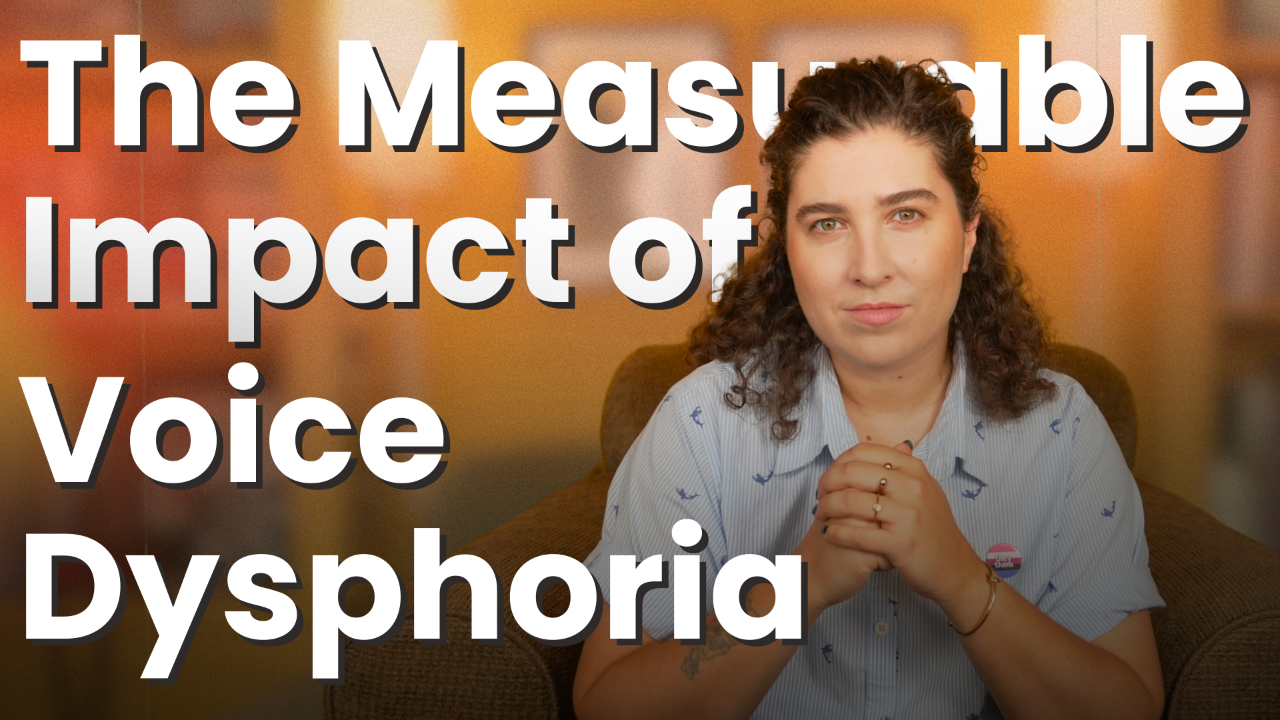Is Modifying Your Voice a Social or Medical Change?
Oct 23, 2023
As a gender-affirming voice teacher, I spend a lot of my time philosophizing and pontificating on the topic of gender transition. It's an ever-changing and complex topic! One question that often arises is whether modifying one's speaking voice to align with their gender presentation falls under the umbrella of social transition or medical transition. In this blog post, I'm going to share my thoughts on this matter.
In the world of gender transition, we commonly divide the process into two main categories: social transition and medical transition. Social transition encompasses the changes we make in our external appearance and behavior, such as clothing, hairstyles, and even our chosen name. These are aspects of our identity that we continuously adapt to align with our gender identity and how we want to be perceived by the world. On the other hand, medical transition involves physical alterations like surgeries and hormone replacement therapy (HRT), which are generally one-time or ongoing medical treatments aimed at changing one's physiological characteristics.
So, where does our voice fit into this intricate puzzle of self-discovery and transformation? Voice is a unique and fascinating aspect of gender identity, as it straddles the line between social and medical transition. The reason for this is simple – our voice is both a product of our physiological makeup and our behavioral choices.
When we speak of medical transition, it's easy to think of actions that physically change our bodies, such as surgeries and hormone therapy. These interventions directly alter our physiology, causing shifts in secondary sexual characteristics like facial hair growth or breast development. However, what sets voice apart from these changes is that it can be influenced both medically and socially.
For instance, hormone replacement therapy can have an impact on one's vocal range. Testosterone, often used by transgender men, can lead to a deeper voice due to the changes it triggers in the vocal cords. On the other hand, vocal surgeries are available for those who want to modify their voices more drastically. These medical interventions can be integral to some individuals' transition journeys, allowing them to feel more in sync with their gender identity.
On the flip side, our voice is a complex interplay of behavior and expression. It's a dynamic aspect of our identity that reflects not only our physiology but also our feelings, emotions, attitudes, and the daily experiences we go through. Just like we change our clothes and hairstyles to reflect our gender, we can also modify our voices through behavioral choices. This includes adjusting speech patterns, pitch, and resonance to better align with our true selves. In essence, our voice is a part of our daily behavior, much like personal style.
Consider it this way – if you can change your shirt every day or switch up your hairstyle to match your mood or identity, why not do the same with your voice? Just as your clothing choices may evolve as your gender expression shifts, so can your voice. It adapts and grows with you, responding to the changes in your identity, emotions, and life experiences.
From my perspective as a voice teacher specializing in gender-affirming techniques, I tend to view voice modification as a part of social transition. I see it as an expression of one's identity, a conscious and ongoing choice to communicate in a way that resonates with who they truly are. It's a behavioral adjustment, much like any other aspect of self-presentation that falls under social transition.
However, it's essential to acknowledge that perspectives on this matter can vary. Some medical professionals, such as surgeons and endocrinologists, may consider voice modification as a component of medical transition because of the physiological changes that can result from HRT or surgery. The key takeaway here is that the way you categorize voice modification during your gender journey ultimately depends on your personal beliefs and how you choose to define your own transition.
In conclusion, the question of whether modifying your speaking voice to align with your gender presentation is a social or medical change doesn't have a one-size-fits-all answer. It's a deeply personal and individual aspect of gender transition, with room for diverse perspectives and interpretations. Regardless of how you choose to classify it, what's most important is that your voice aligns with your true self and allows you to express your gender identity authentically.
What do you think about this? Remember, your journey is unique, and your voice is just another part of your self-expression!
Want weekly tips, resources, and insights on trans voice training? Sign up for my newsletter and get the latest content delivered straight to your inbox. It's free!









